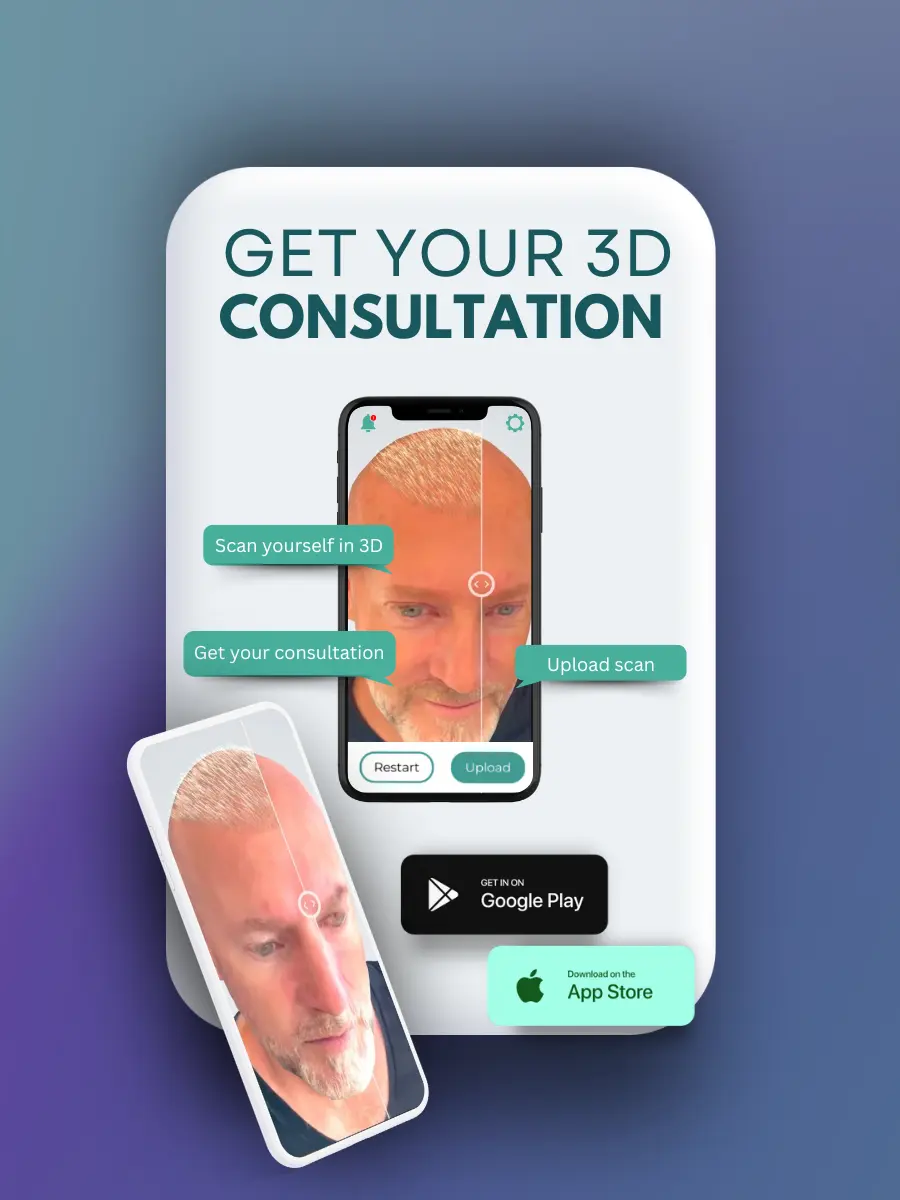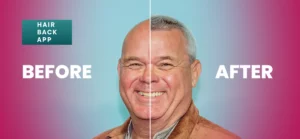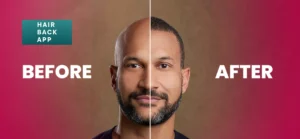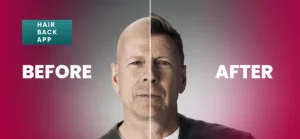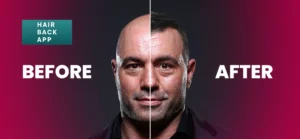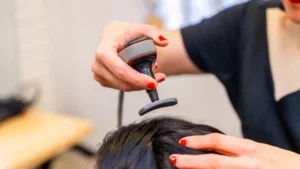Hair Transplants and Self-Esteem have become increasingly intertwined topics as more individuals choose hair restoration procedures to regain their confidence.
The emotional impact of hair loss often extends beyond physical appearance, influencing how individuals perceive themselves and their overall mental well-being.
My name is Emma Wright, your resident hair restoration specialist. Today, we’ll be discussing Hair Transplants and Self-Esteem. By examining the psychological effects of hair loss and the potential benefits of hair transplants, we can better understand the relationship between hair restoration and self-esteem.
The Psychological Impact of Hair Loss
Hair loss, or alopecia, affects millions of individuals worldwide, with varying causes such as genetics, hormonal changes, medical conditions, or stress. For many, hair plays a crucial role in their self-identity and confidence.
When hair loss begins, it often triggers a chain reaction of psychological consequences, leading to diminished self-esteem, increased anxiety, and, in some cases, depression.
According to studies, a significant number of individuals experiencing hair loss report feeling unattractive or less desirable. This can lead to social withdrawal, difficulties in professional and personal relationships, and even self-doubt about their capabilities.
The reason behind this reaction is largely cultural; thick, full hair is often seen as a sign of vitality, youthfulness, and attractiveness. The absence of it can make a person feel disconnected from these ideals, contributing to a damaged self-perception.
How Hair Transplants Can Enhance Self-Esteem
For individuals facing hair loss, a hair transplant is more than just a cosmetic procedure; it’s a pathway to restoring lost confidence. Hair transplants involve moving healthy hair follicles from one part of the body (typically the back of the head) to balding areas, allowing new hair to grow naturally. The hair growth cycle then ensures that the transplanted hair continues to thrive over time.
The physical transformation achieved through a successful hair transplant can dramatically boost an individual’s self-esteem. The ability to style hair, see regrowth in previously thinning areas, and regain a youthful appearance contributes to a renewed sense of self.
In many cases, patients report feeling more confident in social situations, experiencing improvements in their professional lives, and even rekindling personal relationships.

The Role of Self-Perception
One of the primary ways hair transplants and self-esteem are linked is through self-perception. Self-perception is the lens through which we view ourselves, affecting how we interact with the world around us.
When individuals feel dissatisfied with their appearance due to hair loss, they often project this dissatisfaction onto other areas of their life. Even something as simple as avoiding mirrors or avoiding social engagements can become common behaviors.
However, with the re-establishment of a fuller head of hair, the change in self-perception is notable. Many who undergo hair transplants feel liberated from the previous limitations they placed on themselves. They become more outgoing, self-assured, and willing to participate in activities that were previously anxiety-inducing.
The Process and Psychological Benefits
The psychological benefits of a hair transplant go beyond the immediate visual change. The process of undergoing a hair transplant often involves a sense of taking control of a previously uncontrollable situation. By choosing to take action, individuals feel empowered in a way they hadn’t before, which contributes to a significant boost in self-esteem.
For many, the decision to get a hair transplant is deeply personal. It often requires a thorough evaluation of one’s desires, goals, and reasons for feeling the way they do. After the procedure, as the hair growth patterns begin to change, patients frequently experience a surge in positive emotions and satisfaction with their decisions. This sense of empowerment and improved outlook often translates into other areas of life, fostering an upward spiral of positive changes.
The Role of Social Media
In the age of digital connectivity, the relationship between hair transplants and self-esteem has also been amplified by social media. Influencers and public figures openly sharing their hair restoration journeys help normalize the conversation and reduce the stigma surrounding hair loss.
People now feel more supported in their decisions to seek help, and the visibility of successful results has provided a realistic understanding of what to expect.
However, it is essential to approach this with a balanced mindset. While social media can provide motivation and support, it can also create unrealistic expectations. Not everyone’s hair growth cycle will be the same, and hair transplants might yield different results depending on the individual’s condition.
Setting realistic goals and expectations with a qualified specialist is key to a successful and satisfying experience.
Long-Term Psychological Impacts
The relationship between hair transplants and self-esteem doesn’t end with the immediate regrowth of hair. Long-term psychological benefits can include improved mental health, enhanced body image, and better quality of life. As self-esteem grows, individuals often report feeling a renewed sense of purpose, motivation, and overall happiness.
Many studies have shown that cosmetic procedures like hair transplants can positively impact mental health. By restoring what was lost, individuals can overcome feelings of embarrassment, inadequacy, or insecurity. The journey toward accepting one’s new appearance is, in essence, a journey toward greater self-acceptance and self-love.
Considering the Role of Nutrition
While the technical aspects of a hair transplant are critical to the final results, it’s also worth noting the role of nutrition in hair growth and health. Post-transplant care includes recommendations for a balanced diet that promotes strong and healthy hair regrowth. This holistic approach to hair restoration helps individuals maintain their results and feel more in control of their overall health and appearance.
Real-Life Experiences
Real-life stories often highlight the transformative power of hair transplants on self-esteem. A man in his mid-thirties shared his journey of dealing with early-onset male pattern baldness. He reported feeling anxious about dating, avoiding social gatherings, and even experiencing difficulties in the workplace due to a lack of confidence.
After undergoing a hair transplant, he expressed feeling rejuvenated and more confident in every aspect of his life.
In another case, a woman who experienced postpartum hair loss felt disconnected from her appearance and struggled with self-acceptance. After a hair transplant, she not only regained her hair but also restored her confidence in her role as a mother and professional.
Addressing Stigma and Misconceptions
Despite the growing popularity of hair transplants, there are still some lingering misconceptions and stigmas surrounding the procedure. Misconceptions about unnatural results or the fear of being judged often prevent individuals from seeking the help they need.
However, modern techniques like hairline design and direct hair implantation offer natural-looking outcomes that match the patient’s facial features and preferences.
Overcoming these stigmas is crucial in helping people make informed decisions about their appearance without feeling ashamed. Education about the advancements in hair transplant technology can dispel myths and encourage those experiencing hair loss to explore their options with confidence.
Conclusion
The connection between Hair Transplants and Self-Esteem is undeniably strong, with psychological benefits that extend far beyond a person’s physical transformation. By addressing the root cause of diminished confidence, hair transplants provide individuals with the opportunity to restore their self-image and regain control over their lives. The key takeaway is that hair restoration isn’t merely about vanity; it’s about mental well-being, self-perception, and personal empowerment.
For those considering a hair transplant, it’s essential to have realistic expectations, consult with qualified professionals, and approach the decision with a clear understanding of the potential outcomes. Hair transplants and self-esteem go hand-in-hand, offering a renewed sense of confidence and a brighter outlook on life.

